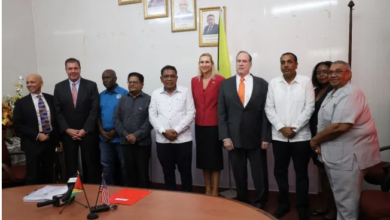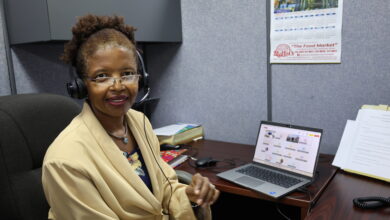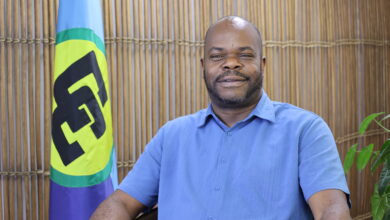Barbados and the region can have a bustling coconut industry, despite being smaller than major growers such as Indonesia and The Philippines.
This assertion was made by Maurice Wilson, who is the Regional Coconut Industry Coordinator at the Caribbean Agricultural Research and Development Institute (CARDI).
He was speaking with the Barbados Government Information Service (BGIS) following the inaugural meeting of the National Stakeholders Platform (NSP) on the coconut industry, recently held at the Ministry of Agriculture’s Graeme Hall offices.
Barbados is among 11 CARIFORUM countries participating in a European Union (EU)-funded Caribbean Coconut Industry Development project. The Euro 4 million project, being executed by CARDI, is geared towards enhancing the competitiveness of the region’s coconut industry, thereby ensuring food security, creating jobs and generating revenue.
Mr. Wilson gave an overview of the undertaking, and noted that the Caribbean’s coconut industry was thrown into a tailspin decades ago, after coconut oil was deemed unhealthy. “In the 1970s, the coconut industry in the region virtually collapsed, because there was a soya bean lobby, which indicated that coconut oil was bad for the system.
“In those days copra, used to produce coconut oil, was the main thrust of the coconut industry. People didn’t use much coconut water, so when the trade in coconut oil collapsed, people abandoned the coconut plantations,” he explained.
According to Mr. Wilson, upon realising the importance of the coconut industry, Caribbean governments lobbied for its restoration. The EU responded, sponsoring a study, the results of which were presented at the 2013 Caribbean Week of Agriculture in Guyana.
Subsequently, CARDI submitted a proposal to the EU, which was prepared with the assistance of stakeholders. This led to the EU making funding available.
When asked about Barbados’ capability of becoming a major player in the coconut industry, Mr. Wilson said there was nothing stopping the island from doing so, as there was high demand for the fruits’ water.
“Barbados is a recognised consumption point for coconut water, not only principally or only because of Barbadians, but the tourist industry. That’s why there’s such a high demand, and where there’s demand there will be supply.”
The CARDI official continued: “Whether the supply comes from within or outside of Barbados is another matter, and will depend on the resolve of the producers but definitely Barbados, in spite of what people say about its size, is not exempt from entering the fray and being a principal producer of coconut water.”

(Stock Photo)
As it relates to the large scale growing of coconuts, Mr. Wilson pointed out that while this depends on land availability, there was no need for one huge space. According to him, this could be resolved by partnerships at the domestic and regional levels.
“You’re talking about organisation, because 20 or 100 small farms can get together to service a processing facility which can buy their coconuts, process them, extract the water, bottle and export it,” he suggested.
The derivatives from coconuts extend beyond the precious water and oil, as by- products can be created from the shells and fibre. Research shows they can be used in animal feeds, material for clothing, or even environmentally-friendly energy alternative biomass.
Queried about considering this approach as a potential money earner, and as a means of combatting the illegal dumping of coconut shells, Mr. Wilson suggested it could work, but pointed to a possible difficulty.
“Usually the challenge is collecting the shells. Again I would expect, guided by the National Stakeholder Platform with support from the Ministry of Agriculture and CARDI, that a system for the efficient collection of shells and any other [coconut] waste that could be utilised in any other aspect in the industry would be something that you could follow,” he recommended.
Regarding his outlook for the coconut industry in Barbados and the Caribbean, CARDI’s Regional Coconut Industry Coordinator expressed great optimism, saying he believed the future would be “very bright”.
“Millions of litres of coconut water are required by the rest of the world, by many of the established companies, such as Coca Cola….Coconut water is promoted as a health liquid and the people who buy that are health conscious and they do big business. The sky is the limit.”





